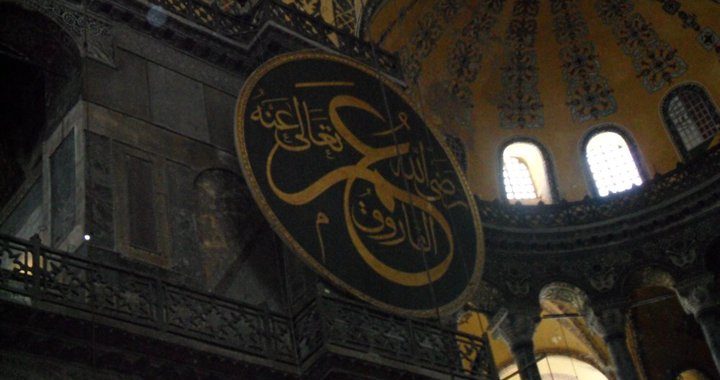Recently, the news of a Palestinian toddler being burnt alive by Israeli settlers caught my attention. The eighteen-month old Ali Dawabsheh was asleep when Israeli extremists set fire to his house, and the kid was burnt beyond recognition by the time his body was found.
Ali’s parents too were badly injured; his four-year old brother, Ahmad Dawabsheh, is in a critical condition with over 60% of his body burnt.
Sad. Heart-breaking.
The fact that Zionists indulge in cold-blooded murder and bloodshed of innocent Palestinians is not new. Ever since 1948, violence and genocide have been the norm. To make matters worse, Israeli settlers and Zionists tend to justify their actions through varied excuses — Promised Land, Chosen People, whatever suits their intent and purpose!
It was recently claimed in an op-ed that Israel, as a “state”, has failed to prevent violence and safeguard the prospects of peace. This reminded me of a man who, whilst ruling a nation much larger than present-day Israel, left no stone unturned in ensuring the safety of civilians.
Hz Umar ibn al-Khattab (RA).
Remembering The Covenant of Umar (RA)
The second Caliph of Islam, Hz Umar ibn al-Khattab (RA), offered an apocryphal treaty to non-Muslims in general, and Christians in particular, after liberating Jerusalem and nearby regions from Byzantine control. This treaty would later gain a canonical status in Islamic jurisprudence.
The Pact of Umar (RA)
Shortly after the liberation of Jerusalem, Hz Umar (RA) laid down a pact, that safeguarded the interests of non-Muslims in the region. The Pact read as under:
In the name of Allah, the Merciful, the Compassionate.
This is the assurance of safety which the servant of Allah, Umar, the Commander of the Faithful, has given to the people of Jerusalem.
He has given them an assurance of safety for themselves for their property, their churches, their crosses, the sick and healthy of the city and for all the rituals which belong to their religion. Their churches will not be inhabited by Muslims and will not be destroyed. Neither they, nor the land on which they stand, nor their cross, nor their property will be damaged. They will not be forcibly converted.
The people of Jerusalem must pay the taxes like the people of other cities and must expel the Byzantines and the robbers. Those of the people of Jerusalem who want to leave with the Byzantines, take their property and abandon their churches and crosses will be safe until they reach their place of refuge. The villagers may remain in the city if they wish but must pay taxes like the citizens. Those who wish may go with the Byzantines and those who wish may return to their families. Nothing is to be taken from them before their harvest is reaped.
If they pay their taxes according to their obligations, then the conditions laid out in this letter are under the Covenant of Allah, are the responsibility of His Prophet, of the Caliphs and of the Faithful.
The Assurance of Umar (RA)
Going a step further, Hz Umar (RA) further offered assurance of total safety to the Christians of Jerusalem, shortly after the city was liberated from Byzantine control. Known as al-Uhda al-Umariyyah, this Assurance would go on to ensure that non-Muslims continued to live in the Islamic World in peace and prosperity for centuries to come.
Of course, the behavior of Hz Umar ibn al-Khattab (RA) was exemplary; he set an example that can never be paralleled.
Yet, each time Israeli soldiers storm al-Aqsa Masjid, one is reminded of Hz Umar (RA)’s behavior, when he entered Jerusalem and the Christian priest Patriarch Sophronius requested him to offer Namaz in the church itself. Hz Umar (RA) declined, for he feared that later generations of Muslims might use this as an excuse to convert the church into a masjid. Instead, he prayed at a separate spot, and that place is today known as Masjid of Hz Umar ibn al-Khattab (RA).
Similarly, each time Zionists murder Palestinians in cold blood, one is reminded of the Covenant of Umar (RA), and the peaceful manner in which he ruled the state.
It goes without saying that the Covenant applies to us, the Muslims, and not to Israeli settlers who just wish to assert their authority by force. All said and done, it is obvious that peace can only be established if we follow the example of Hz Umar ibn al-Khattab (RA).
Featured Image: Wikimedia Commons

